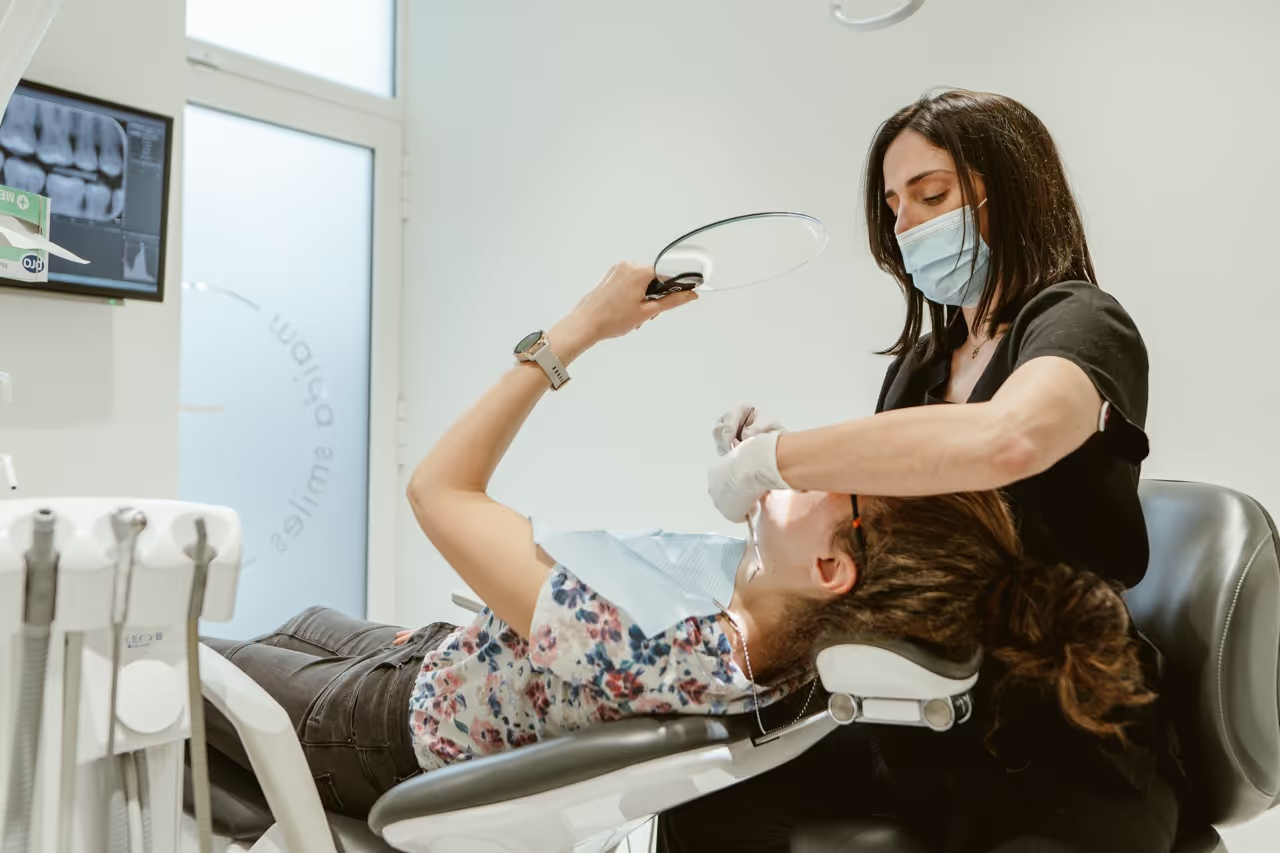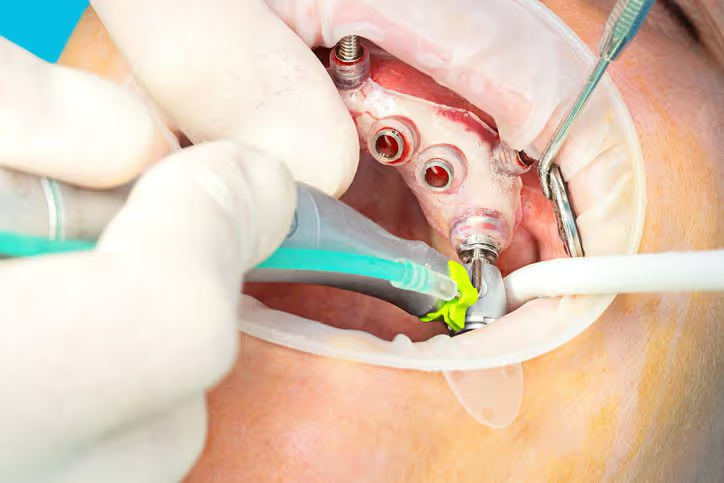

September 18, 2025
You don't have to be a nervous patient to be concerned whether the dental implant procedure is painful. It is, after all, an invasive surgery. That said, it is carried out chairside, so you don't have to have any visions of being wheeled down into a surgical room and being put under. In fact, dental implants are placed into your jawbone using local anaesthetic.Here are some other facts to know straight away:

Unlike other tooth replacement procedures like dental bridge placement and dentures, the dental implant procedure is more invasive just because we have to embed a titanium screw into your jaw, which will act like an artificial tooth root.While this sounds painful, you won't feel anything other than pressure after applying the local anaesthetic. Some have compared the procedure to having a tooth extracted, which only feels like pressure and pulling instead of pain if you're familiar with it. But in this case, we're not removing a tooth, we're placing one.
Following surgery, you can expect some discomfort, though; for example, your gums might ache. However, the initial recovery process is fast, and you'll return to feeling normal within a few days to a week. Some swelling is also to be expected, and it can be managed at home with over-the-counter medications and ice packs.To further aid the recovery process, you can also begin to rinse your mouth with warm salt water to calm the tissues and provide extra alleviation. Do bear in mind, though, that following the procedure, the dentist will give you the best tips to limit pain and what you will need to do specifically to aid healing and recovery.


Recovery times can vary depending on your treatment plan, your overall health and the number of dental implants placed. On average, most patients recover within 10 days of surgery. Minor discomfort should be expected following surgery. However, this should not continue past the first seven days.If you still feel in pain following the two-week mark, please make an appointment to ensure no infection. Infections are rare, but they are possible with any surgical procedure, and we'll prescribe antibiotics to prevent an infection from occurring.During this time, it's essential that you follow the advice given, maintain good oral hygiene, follow your recovery plan, take your medication and remain smoke-free.If you are unsure of anything or have a question that we have not answered, you can consult Dr Pedro Guterries, a renowned implant dentist, who can assist you with any of your queries. For more information, feel free to get in touch with us on 020 3583 9809.